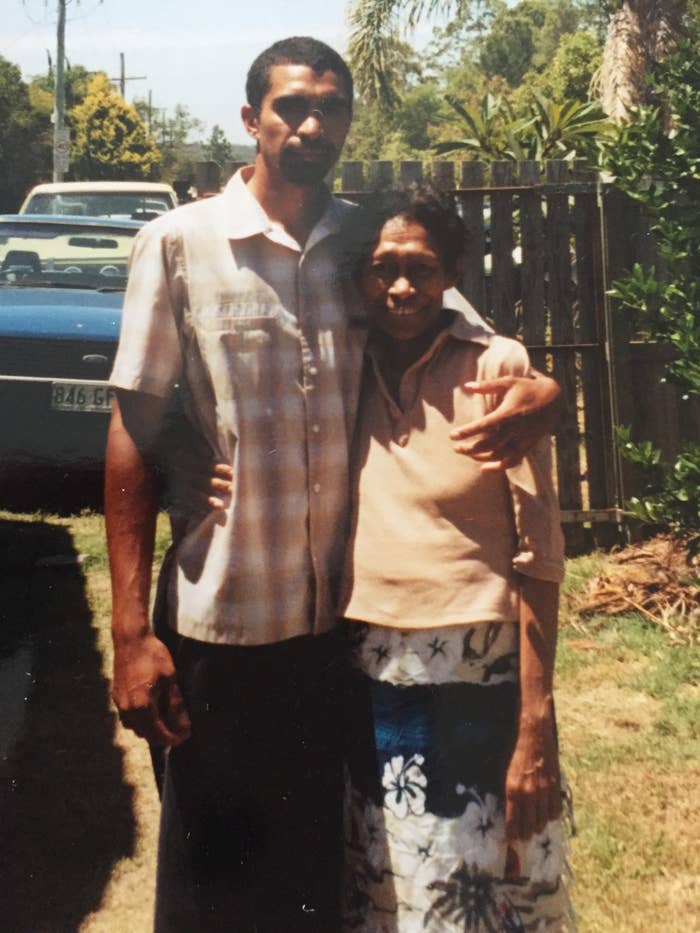
More Indigenous people could be held in immigration detention and deported from Australia if a new migration law is passed, three separate lawyers’ groups have warned.
At least eight Indigenous people have already had their visas automatically cancelled in recent years because they failed the controversial character test in the Migration Act. But the government’s plans to dramatically expand automatic visa cancellations could disproportionately impact Aboriginal and Torres Strait Islander people, lawyers say.
Since 2014, Australia has cancelled the visas of people who are sentenced to a year’s imprisonment or longer. If the proposed law — originally introduced in 2018 and reintroduced in July — is passed, any non-citizen convicted of certain crimes with a two-year maximum sentence would have their visa cancelled, even if their own punishment is much less than that.
Leading lawyers’ groups have told a Senate committee that this threshold is too low and could capture vulnerable people — including Aboriginal and Torres Strait Islander people.
The Visa Cancellations Working Group, a national advocacy group whose members include lawyers and academics, told the committee the bill would lead "many thousands more individuals" to automatically fail the character test. The Department of Home Affairs declined to give the committee a list of all the offences that would trigger a visa cancellation, in part because it would take too long to compile.
Law Council president Arthur Moses SC told BuzzFeed News the bill would apply potentially very broadly and could affect many people in the Australian community.
"Some of [the people impacted by the bill] may be accepted as Aboriginal or Torres Strait Islander people but not Australian citizens. If so, they could be caught by these provisions," Moses said.
He said there was "a huge body of evidence" showing Aboriginal and Torres Strait Islander peoples were more likely than the rest of the community to come into contact with the justice system.
A 2017 Australian Law Reform Commission report found that Aboriginal and Torres Strait Islander people were seven times more likely than non-Indigenous people to be charged with a crime and appear before court. They were also 12.5 times more likely to receive a prison sentence.
The Law Council pointed to a number of cases where Indigenous people have been detained or deported following a visa cancellation under the existing law.
Daniel Love, a 39-year-old who was born in Papua New Guinea to an Aboriginal father and has not left Australia since age six, spent seven weeks in immigration detention before his visa was reinstated.
Brendan Thoms was born in New Zealand to an Aboriginal mother and New Zealander father, and moved to Australia at age six. He has spent the last year in immigration detention.
Love and Thoms have asked the High Court to find Indigenous people cannot constitutionally be deported.
The Law Council also cited the case of Justin Hands, whose visa was cancelled after he spent 44 years in Australia, most of that time in Aboriginal communities. His visa was reinstated after a successful Federal Court appeal.
BuzzFeed News has previously reported on the cases of a man with Aboriginal heritage who was deported to New Zealand, and another Aboriginal man who avoided being sent to New Zealand after he won an appeal in the Administrative Appeals Tribunal.

Moses said it was “troubling that a person who is regarded as an Aboriginal or Torres Strait Islander person or a member of a First Nations community could be removed from the country in which First Nations people were the first Australians.”
He said deportation could have "life-destroying consequences for some families", citing the comments of the court that ruled on Hands' case.
The Visa Cancellations Working Group also raised the impact on Indigenous people in its submission, describing their deportation as "fundamentally anomalous". A representative of the group told BuzzFeed News the changes would "disproportionately affect Indigenous visa holders".
The civil liberties organisation Liberty Victoria also said the bill would “greatly heighten” the risk of Aboriginal and Torres Strait Islander people having their visas unjustly refused or cancelled on character grounds.
The organisation’s president, Jessie Taylor, told BuzzFeed News that in their experience, Indigenous people who do not have Australian citizenship are “disproportionately likely” to have visas unjustly cancelled or refused on character grounds.
The Law Council, the Visa Cancellations Working Group, and Liberty Victoria have recommended the law be rejected.
Taylor said Liberty Victoria was “profoundly concerned” that the existing law already disproportionately affects people identifying as Aboriginal or Torres Strait Islander.
She also criticised the Migration Act for not requiring the government to consider a person’s Indigenous identity or “recognise the unique ties Aboriginal and Torres Strait Islander people have to country”.
The home affairs shadow minister, senator Kristina Keneally, told BuzzFeed News that Labor supported the existing character provisions. She said the opposition would consider the inquiry and report of the Senate committee looking at the bill once it was delivered — "including the serious concerns of stakeholders that the bill could have significant unintended consequences".
Greens immigration spokesperson, senator Nick McKim, told BuzzFeed News that the risk that Indigenous people would be deported was "yet another reason" the bill should be rejected.
"Aboriginal and Torres Strait Islander Australians had their lands stolen over 200 years ago, and it’s utterly disgraceful that the government now wants to make it easier to kick them out of the country," he said. "Incarceration rates for Aboriginal and Torres Strait Islander people are horrendously disproportionate due to laws that in effect are racist, so it’s overwhelmingly likely that they will face deportation at rates above those for people of other backgrounds."
The Working Group has recommended that Indigenous people be excluded from the character test regime entirely.
Taylor suggested that home affairs minister Peter Dutton could amend the ministerial direction, which guides decision-makers who look at visa cancellations, to give weight to a person's Indigenous identity and connection to country when deciding whether to exclude them from Australia.
A department spokesperson told BuzzFeed News that the government was "committed to protecting the community from non-citizens who pose an unacceptable risk to our safety". It added that the bill would apply to all non-citizens but not to an Indigenous Australian citizen.
The committee is due to report on the bill by Friday.
